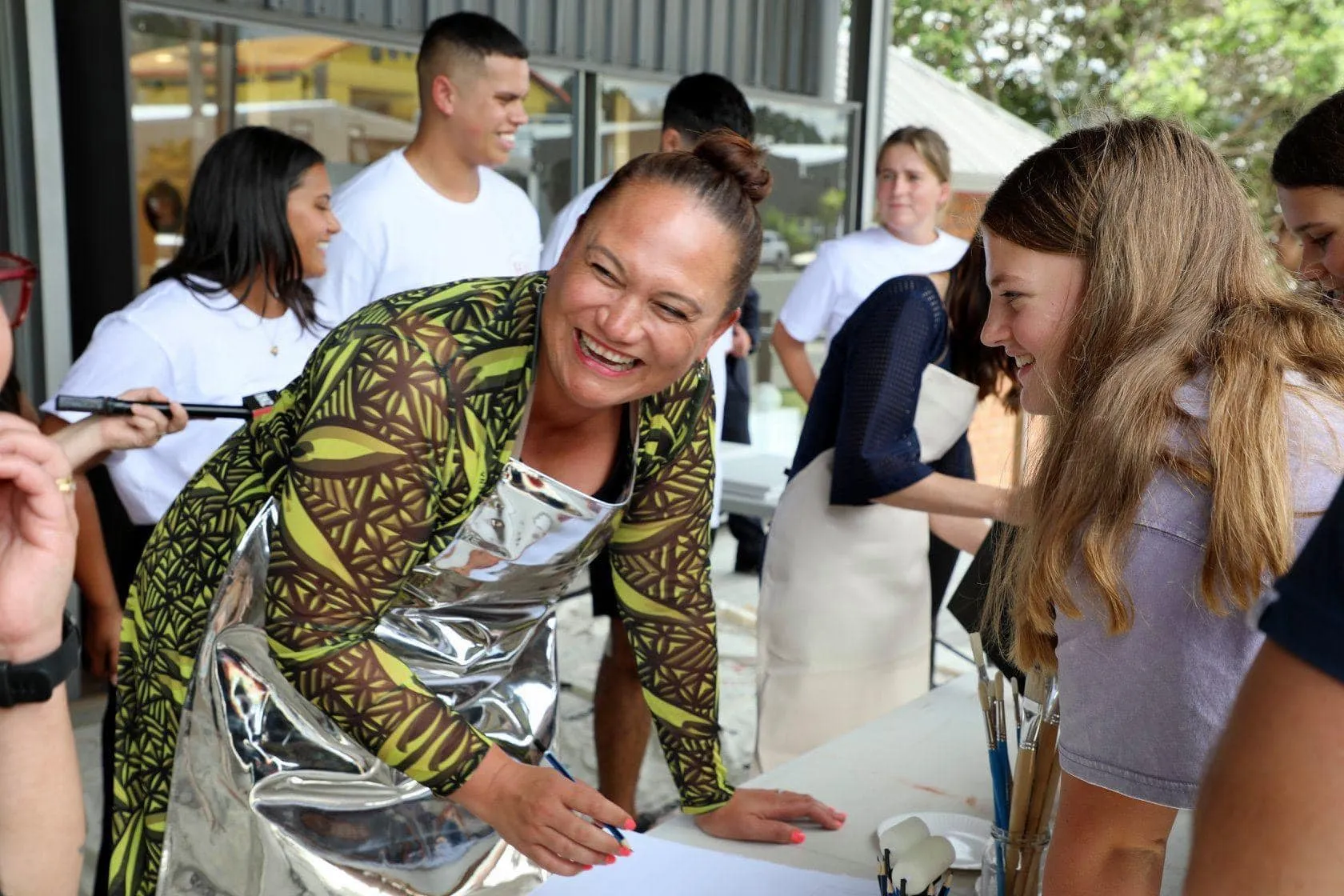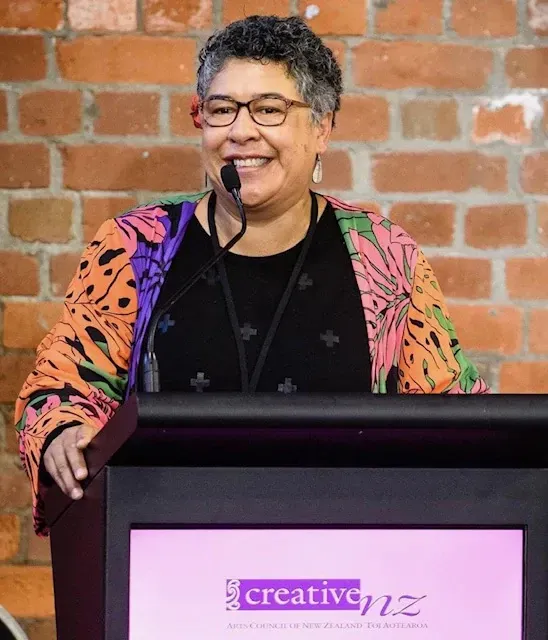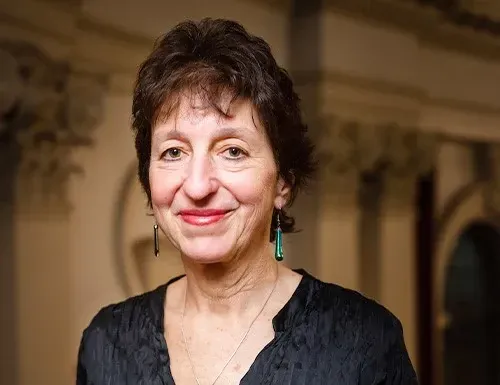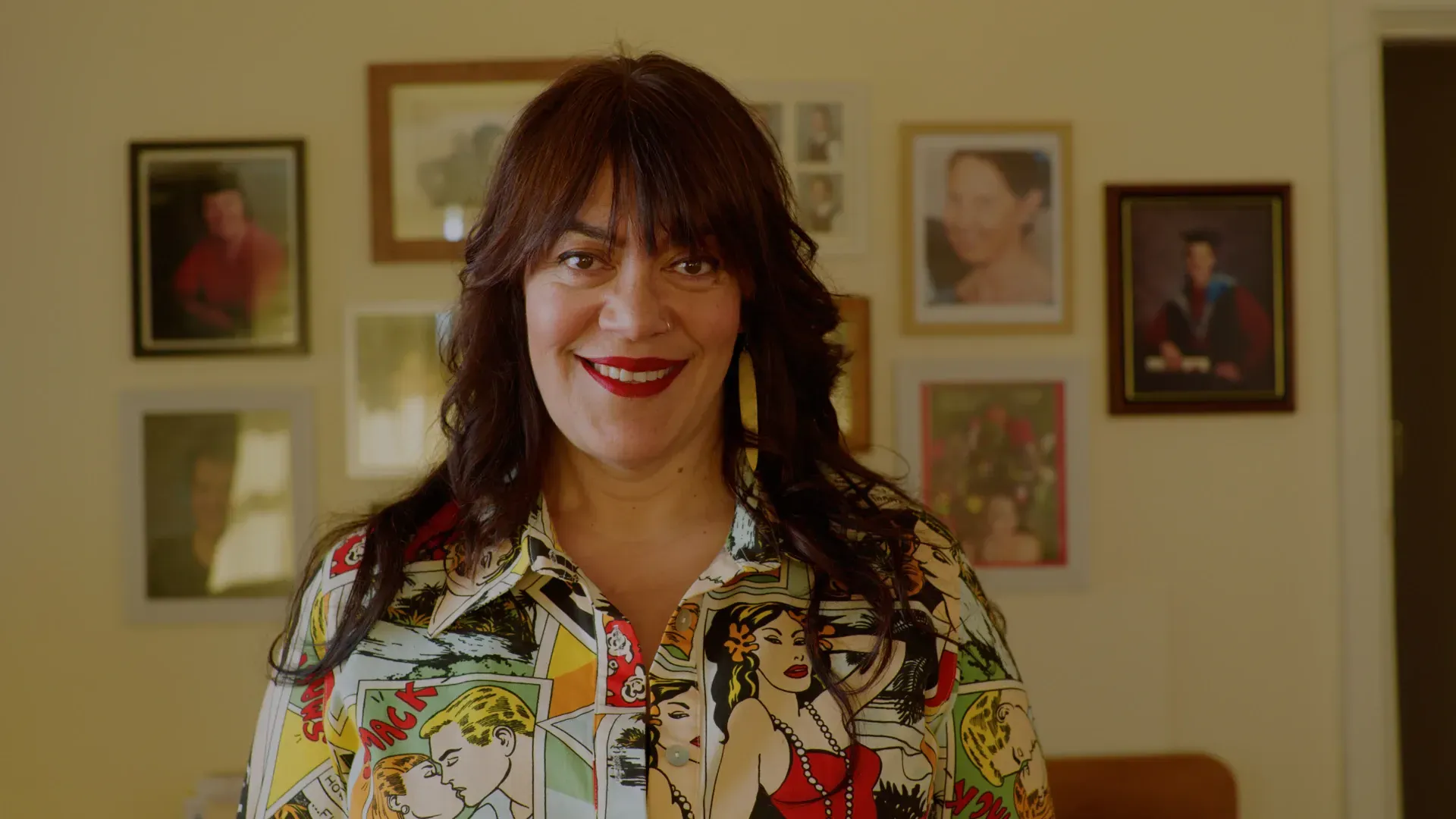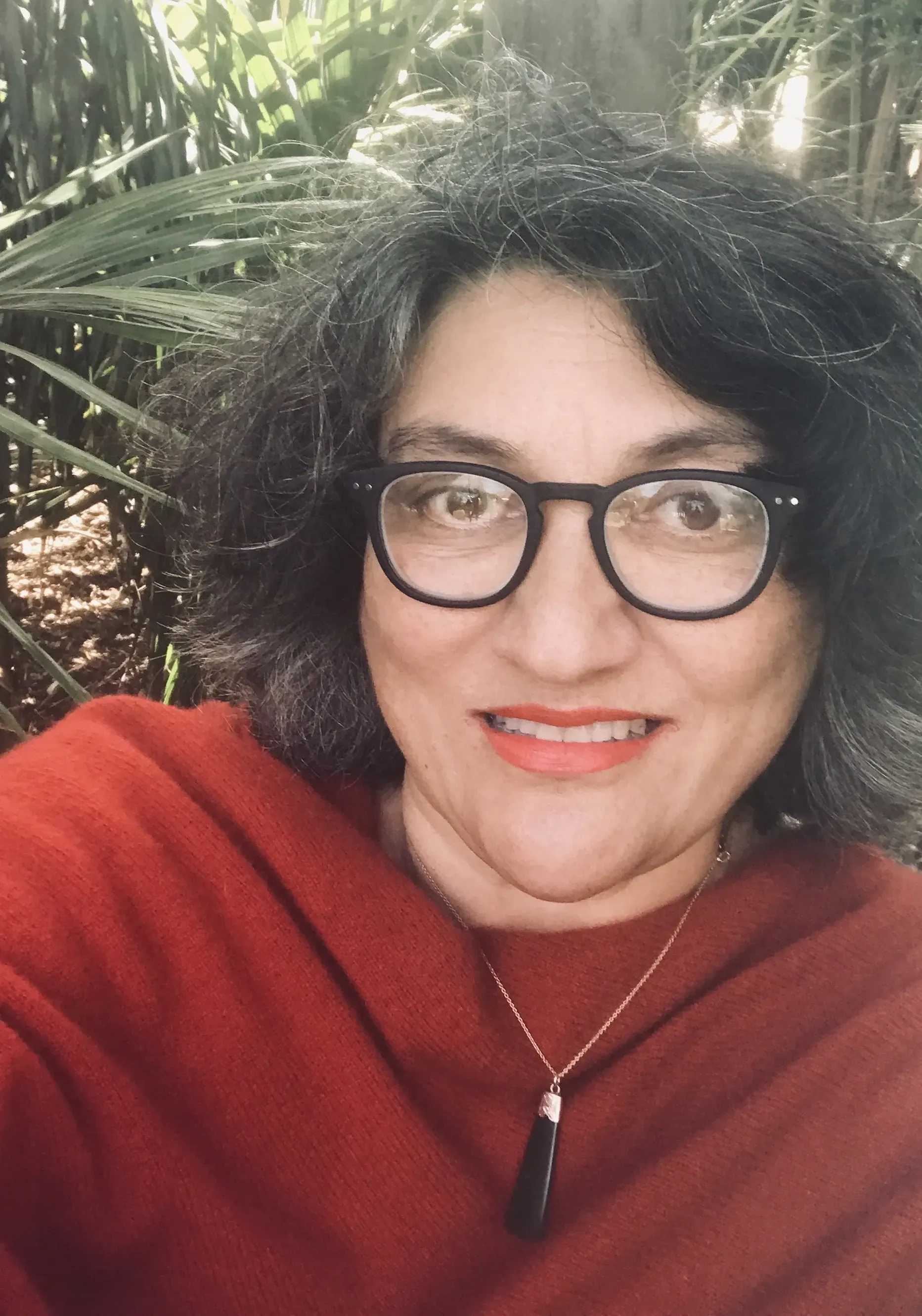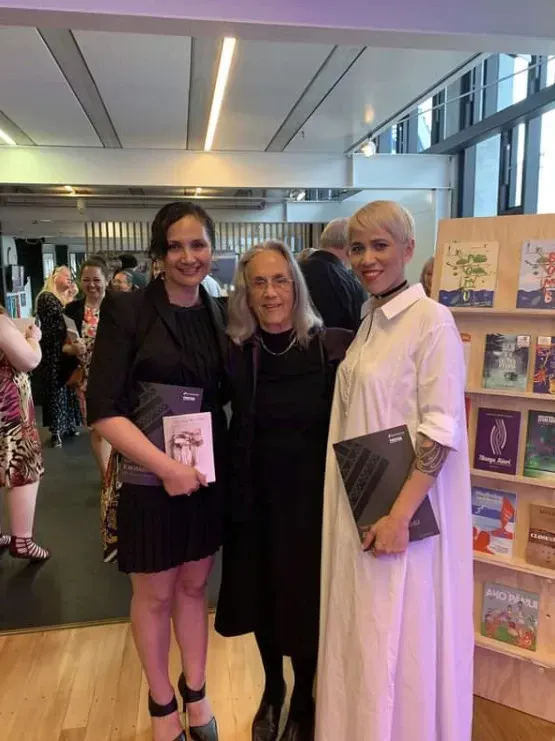Arts Voices: What Has Changed For Women in the Arts?
Written by
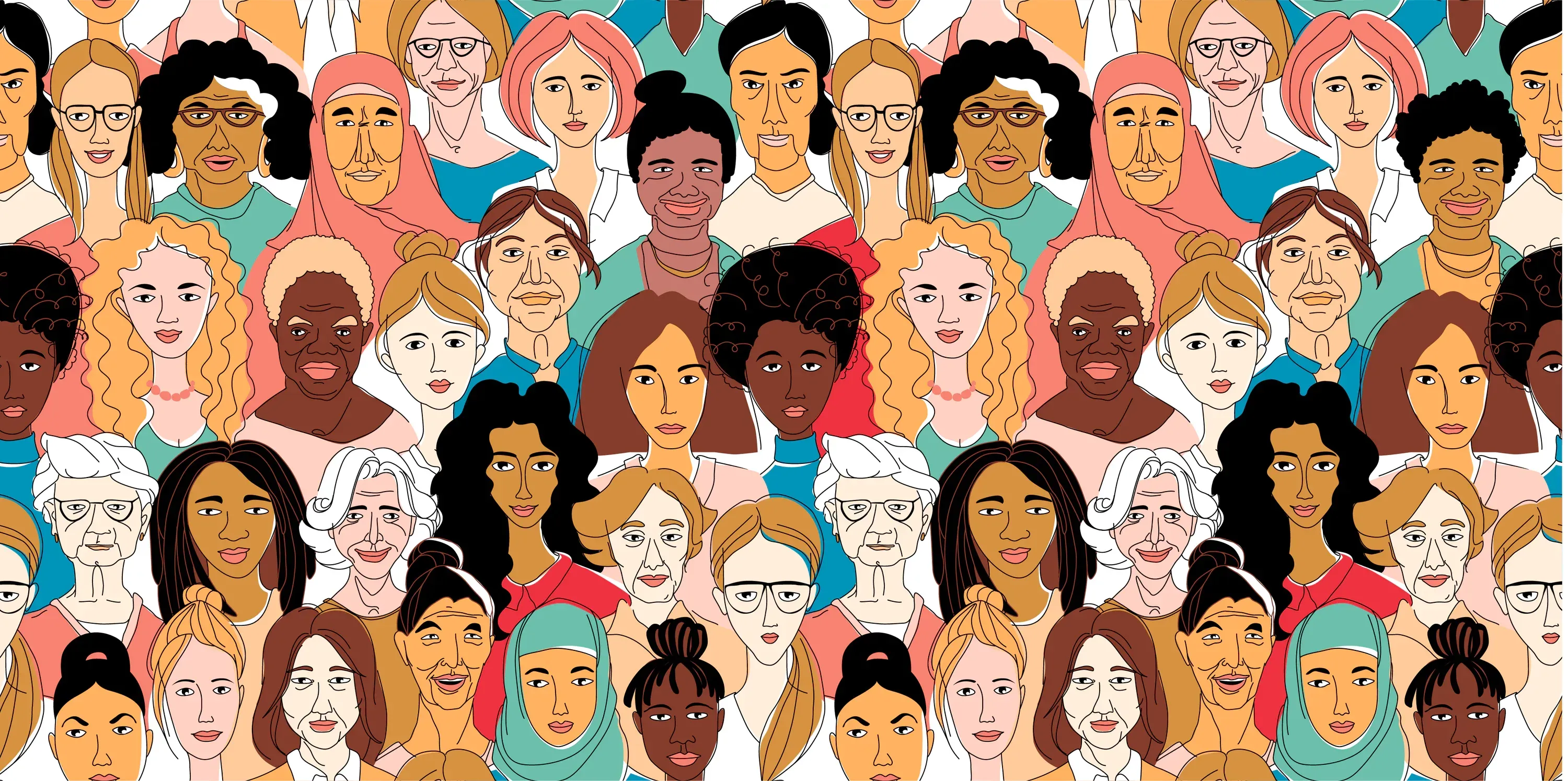
Today marks International Women’s Day - and thanks to our location on the globe, Aotearoa is among the first to celebrate.
The desire to forge a gender-neutral world, to create fair and equitable opportunities for all genders sounds like a no-brainer - but we all know how this story has gone over the generations.
Many say that progress is being made but the reality is so much more could and should be done.
How do the arts in Aotearoa measure? We only need to look at the music industry’s most recent #metoonz movement to be made painfully aware that there are still many inequalities and unacceptable behavior patterns that cannot be accepted.
But there can be no doubting the number of incredible women who are making a real difference in the arts in our neck of the woods.
Arts Voices is a series where we canvas creatives of Aotearoa to get their thoughts on the issues that the sector faces.
To recognise International Women’s Day, The Big Idea asked some of the most prominent wahine toa in New Zealand’s creative community the same question - What has changed for women in the arts and what still needs to shift?
Tusiata Avia - Arts Laureate, poet, playwright and performer
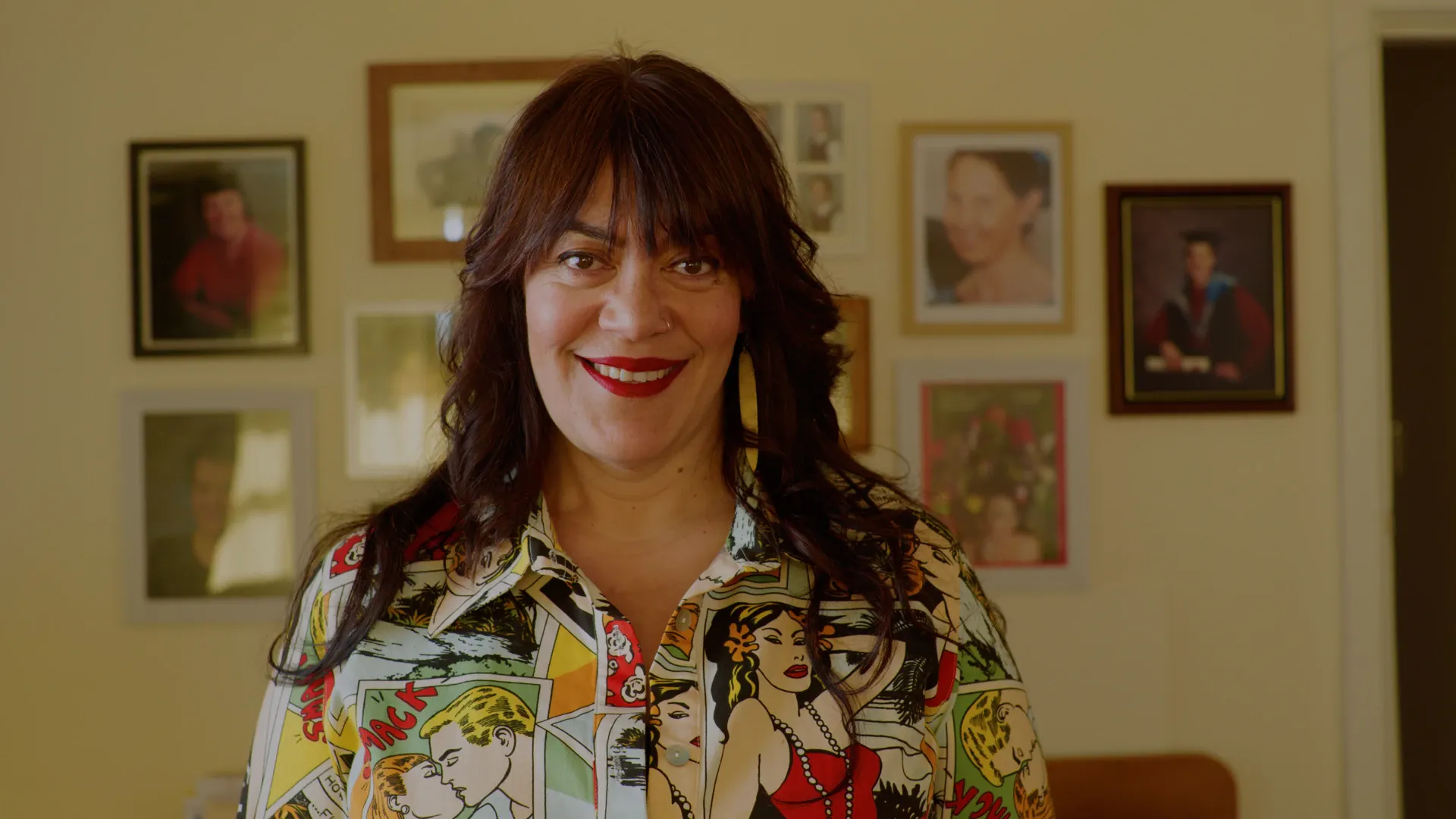
I've been writing seriously for 20 years now. For the last two decades, I've been somewhere floating around the writing 'scene' as well as Pacific arts and theatre.
I began a life in the arts after 10 years overseas - Pacific and Māori arts were booming here. The women in Māori and Pacific theatre and film were amazing strong women - Sima Urale, Nancy Brunning, Nina Nawalowalo, Fiona Collins, Rachel House, Tanea Heke etc. Each of these phenomenal women has supported me in some way and I have watched them develop and rise over the years. Hugely inspirational.
Writing - not so much. The Pacific and Māori women poets I had to look to of my generation were few and far between - Sia Figiel was the one I was most aware of. There were many other Māori and Pacific women poets who had been writing for decades but who were not main-stream-visible: Serie Barford, Meg Campbell, Kay Haunani Trask, Grace Molisa, Konai Helu Thaman, Momoe Malietoa Von Reiche.
My contemporaries - Selina Tusitala Marsh, Karlo Mila, Hinemoana Baker, Teresia Teaiwa, Alice Tepunga Summerville - have been able to carve out a pathway for the women who come after us by being visible.
One of the most important things in the arts (and life in general) is someone to look to - even if you never meet them - someone to let you know: If I can do it, so can you. Men, and white men in particular, have always had this. They've always been reflected back to themselves, always had the boys club and all the privileges that come with the territory.
The current shortlist of the Ockham NZ Book Awards poetry shortlist has everyone in the literary world (well, everyone who cares about this) buzzing. Three of the four finalists are women of colour: Pacific, Māori and Chinese. Our fourth is a man of colour. It's a big deal because this is the only time in the award's 50 years that the shortlist has been 100% POC.
That speaks to being recognised by the gatekeepers and allowed in to swarm the ramparts - all four of us. I don't think the tide has turned forever but we deserve a moment to rest on our hard-won laurels.
Hon. Carmel Sepuloni - Minister for Arts, Culture and Heritage
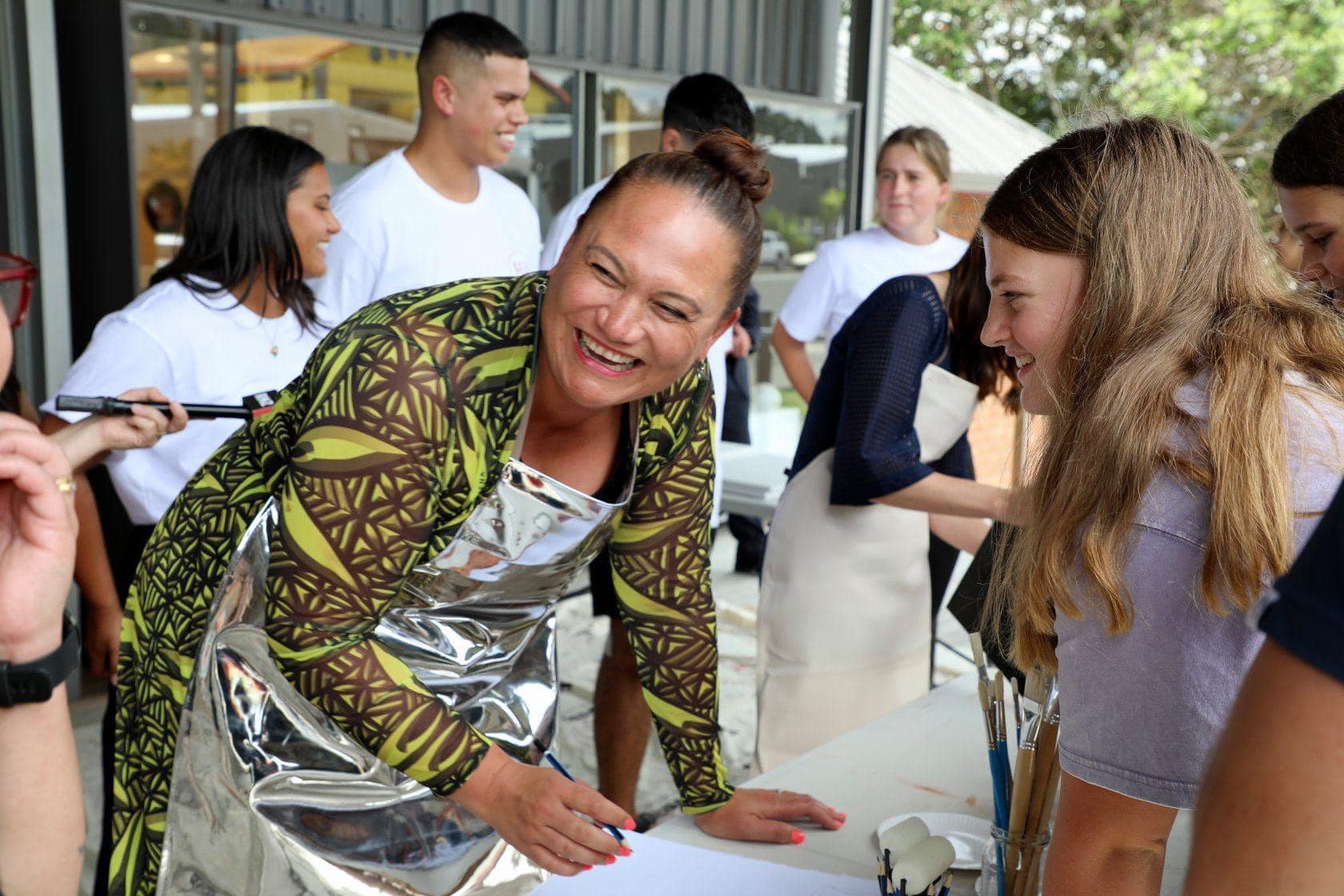
International Women’s Day is a day to pause and reflect on how far we’ve come. You only have to look around the halls of Parliament today to see the great strides made by women in leadership.
The same is true in the arts.
Female artists used to have to hide their identity to be taken seriously. While today, both in New Zealand and around the world, female artists are so often the ones blazing the trails. I think of Lisa Reihana, Niki Caro, Selina Tusitala-Marsh and so many others.
Today we celebrate our progress, but we also need to keep looking forward.
We need to continue to find opportunities and spaces for our female artists to flourish – for female voices to be heard, without reservation or prejudice. We need a world where artists are valued for their vision and passion, regardless of gender, and where working in the arts is a sustainable career option for all.
That’s one of the many things that drive me. And when I need lifting, I turn to the words and work of our wāhine toa, and I am grateful, and I am proud to be a woman.
Caren Rangi, Art Council of NZ Acting Chair
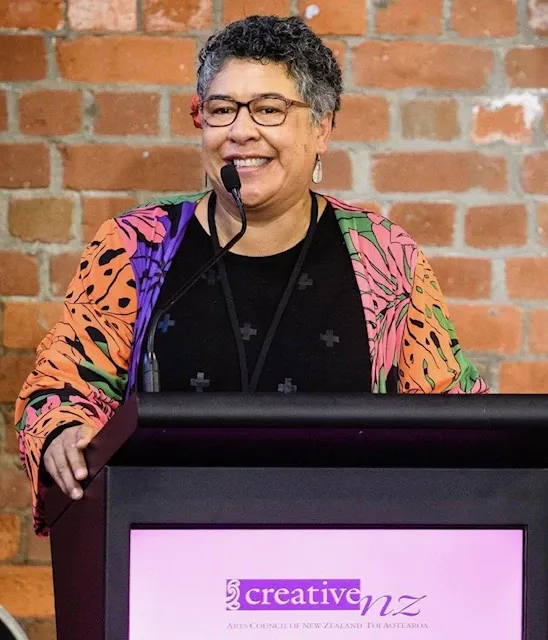
In 2020, New Zealand saw more women than ever featuring in the arts, in the form of artists, arts students and in professional positions in arts organisations.
In 2021, I find myself as only the third woman in 55 years to be in an (Acting) Chair’s position on the Arts Council of New Zealand.
It would be easy to get hung up on the contrast but instead, I choose to celebrate the many women who are artists themselves, enablers of the arts, facilitators of arts development, drivers of arts opportunities and massive supporters of other artists everywhere.
These women are best personified by my dear friend and Pacific arts legend Tanya Muagututi’a - a celebrated playwright, theatre champion and enabler of many major community arts events. Meitaki ma’ata dear Gunny.
Barbara Glaser - Auckland Philharmonia Orchestra CEO
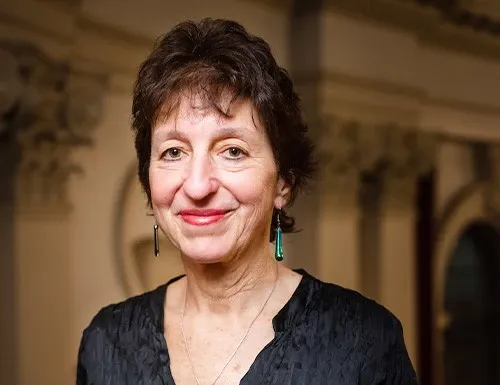
Speaking about women in orchestras and around the orchestral world, some things have changed over the past decades, and some, sadly, are only just starting to change.
Many orchestras, including APO, have a ‘blind” audition system - whereby all hopeful auditionees perform to a panel behind a curtain, and the panel members are judging and comparing candidates only with their ears. Most orchestras in Australasia use this system, and there is a good skill-based representation of genders on many orchestral stages as a result.
The situation isn’t nearly as good with women conductors and composers however.
Globally female conductors have only recently been coming to the fore on a more regular basis - in the past, conducting has very definitely been perceived as a man’s world, possibly because the conductor has a position of “authority”.
Thankfully there are already Kiwi female conductors starting to make a big impact on the world stage, notably Gemma New, Holly Matthieson and Tianyi Lu. These talented women have already appeared with the APO and other New Zealand orchestras and there is a real enthusiasm from our audiences to see them shine on the podium.
We also still need to be seeing more women composers represented in orchestral performances. Again there are some huge talents globally and in New Zealand, composers such as our own Dame Gillian Whitehead and Jenny McLeod have led the way and there are significant voices of whom we can be really proud, across all ages and career stages.
I feel women in Arts management in New Zealand do have a strong voice, and a look across arts organisations will attest to this. Around the board table, there is still work to do in many areas and I am very proud that APO has just appointed four new women to its board, and in present and recent times has also had good cultural diversity amongst them.
Hinurewa teHau - General Manager, Creative Northland
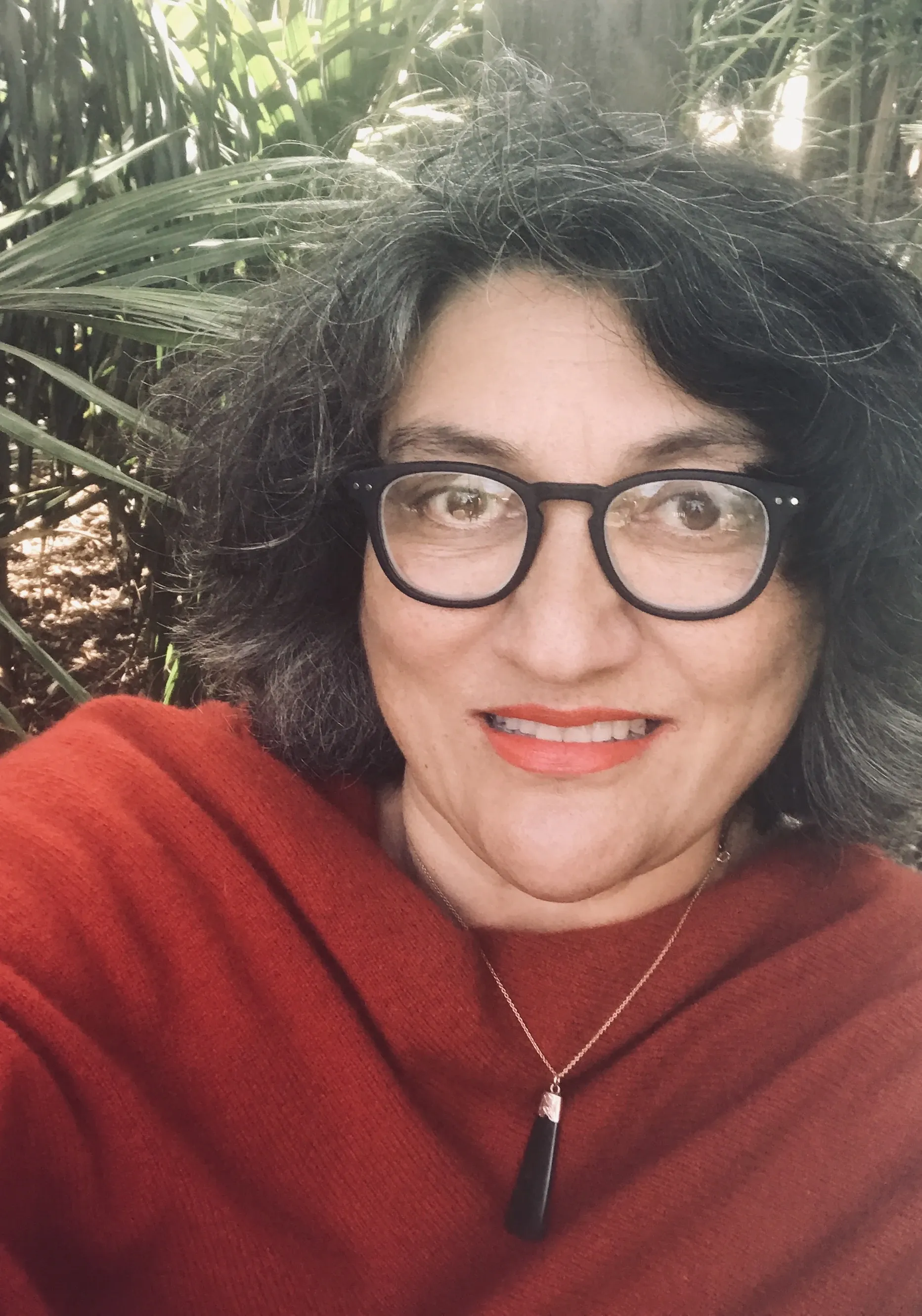
I’m not sure at times if anything has changed for women in the arts - as my gender continue to push and push for equality, fairness and equity across all artistic genres.
However, there is a new generation of female artist - many of whom work across online, video and virtual spheres, creating platforms to incubate ideas for producing new works.
They are motivated by the realities of current times, including the significant under-representation of women in the arts industries, and the urgent need for dynamic new ways to assert the agency of the artist - driving their own innovative practice.
The shift that is still needed is having more female-identified works and celebration of women in art history, making more opportunities. The advice to our new generation of women artists never being complacent in this ever-changing world.
Annette Morehu - Screenwriter, Playwright
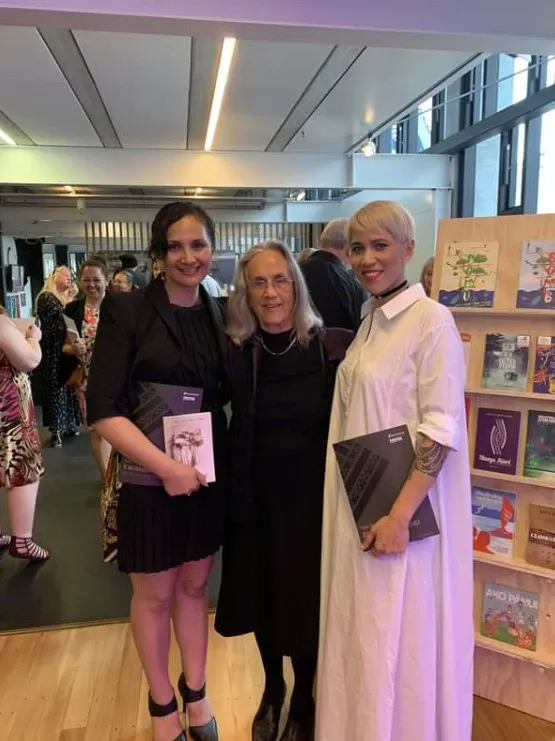
Annette Morehu (right) with Kim Harris and Patricia Grace.
As a wāhine Māori, I have noticed more and more stories being told about the ‘first wāhine Māori’ to gain certain achievements in their careers.
Most recently I read an article about Patricia Grace and all of the ‘firsts’ that she has achieved in her illustrious career. Patricia Grace is a great hero of mine - it was because of her short stories that I read in high school English class that I was able to find my own voice - and there has been a lot written about her as of late thanks to the movie Cousins which was based on the book that she wrote.
Cousins was directed by wāhine Māori; Ainsley Gardiner and Briar Grace-Smith. It also starred many amazing wāhine Māori actors; Ana Scotney, Tanea Heke, and Rachel House to name a few, and it was produced by wāhine Māori; Ainsley Gardiner, Libby Hakaraia, and Georgina Conde.
Cousins is groundbreaking in many ways for us wāhine Māori, and I am so grateful for the likes of these wāhine; trailblazers who are knocking down barriers and clearing pathways for other wāhine to come through.
The industry hasn’t always been welcoming to us, but while things are improving, I would be lying if I didn’t say that I cannot wait for the day that it is no longer groundbreaking for us to have these kinds of career achievements.
I look forward to the day that there are no more ‘firsts’ for us, and I hope to see a time when it is just as normal to see a brown woman doing such things as directing, producing, and writing (and maybe even winning the Academy Award for it) as it is to see a white man.
